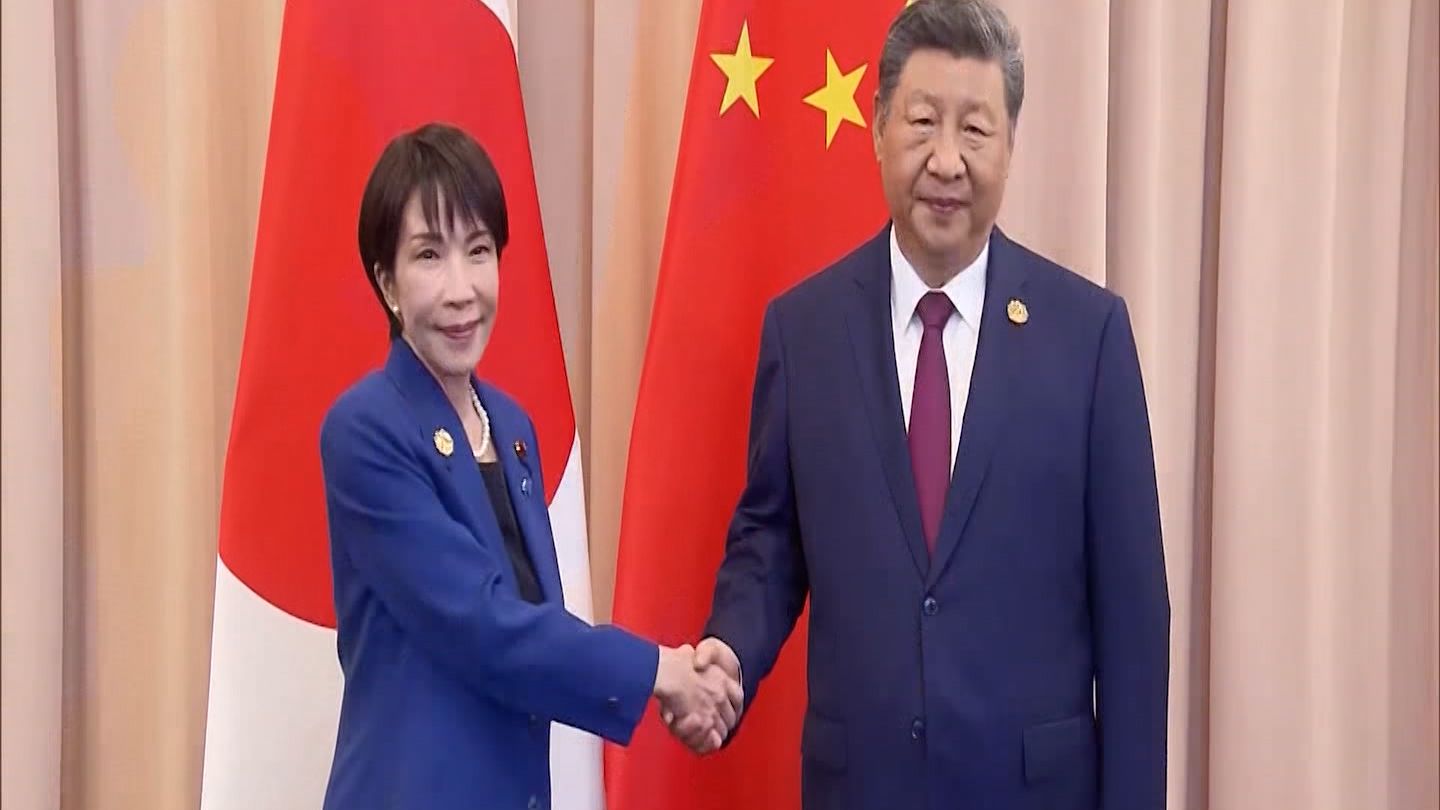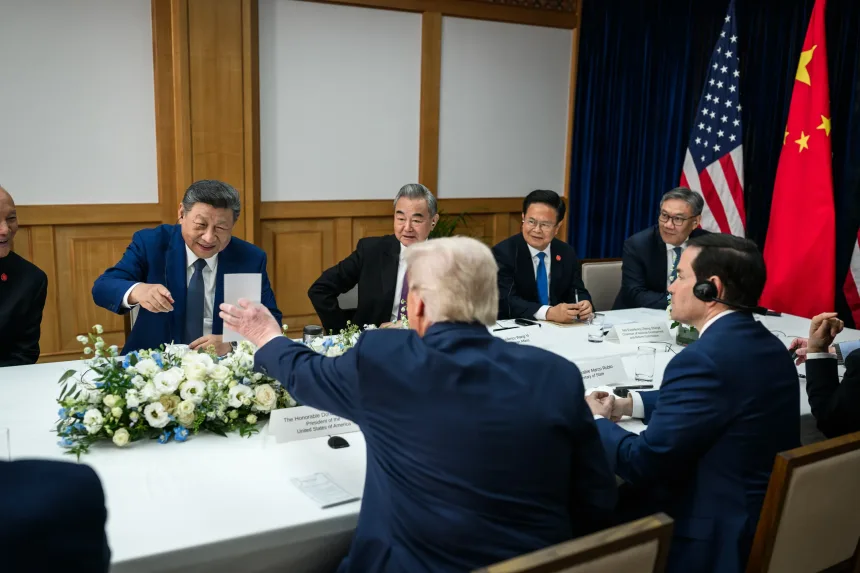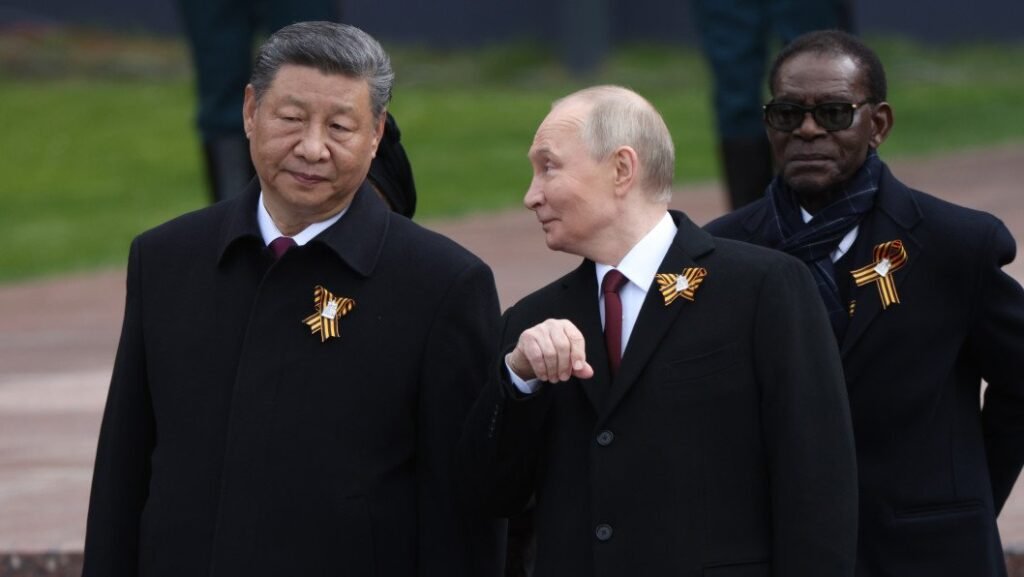Hong Kong
—
Xi Jinping is not known for his easy smiles. China’s most powerful Communist leader in decades has built a reputation reinforced by state media during his 12-year rule as a serious and steady hand.
But images released by the White House show a different side of Xi – and one not apparent in images published at home.
Xi attended the Asia-Pacific Economic Cooperation (APEC) summit in South Korea, where he met US President Donald Trump for a bilateral meeting at Gimhae Air Base in Busan.
All eyes were on how the leaders of the world’s two biggest economies would sort out their differences on a range of topics from soybeans and fentanyl to rare earth minerals and high-end computer chips.
But aside from the hard-hitting diplomacy, photographs released by the White House captured a rare candid moment between the two leaders.
In a room filled with suited diplomats, Trump was seen in one image with his arm stretched across the negotiation table to show Xi a piece of paper. Whatever was written or printed on the paper remains unknown.
In another image, the Chinese leader appears to grin with his eyes shut, with Foreign Minister Wang Yi laughing by his side. It’s unclear if the images were arranged in chronological order.

China’s Xi in the limelight at APEC summit

China’s Xi in the limelight at APEC summit
3:08
Two days later, Xi was caught on camera cracking a joke when he exchanged gifts with South Korea’s President Lee Jae Myung, according to a Reuters video.
Lee first presented Xi with a wooden board for the chess game Go. Then, the Chinese leader gave Lee and his wife two China-made Xiaomi phones, which an official said came with displays made in South Korea, home to electronic giants Samsung and LG.
Lee then jokingly asked: “How is the communication security?” drawing laughter from the room.
Xi, who was also laughing at this point, replied: “You can check if there’s a backdoor.”
A backdoor risk refers to a hidden method of accessing a users’ device without them knowing. The issue has prompted a raft of allegations between China and other countries.
Beijing has recently expressed concerns over a US proposal to have advanced chips sold abroad fitted with tracking, a suggestion that prompted US chipmaker Nvidia to say its chips had no “backdoors.” Meanwhile, numerous Western countries have raised cybersecurity concerns regarding certain China-made devices.
The two off-the-cuff moments from Xi contrast with his carefully crafted image at home, where he was recently shown presiding over a military parade in a Mao suit, an outfit associated with Mao Zedong, Communist China’s founding father.
Before his meeting with Trump, he chaired a party plenum, delivering speeches in a stoic demonstration of his tight control over China’s political apparatus.
Not all Chinese leaders projected such a tightly constructed image.
Xi’s predecessor Jiang Zemin, who served as president between 1993 and 2003, was known for his flamboyant personality, cosmopolitan flair and willingness to show off his language skills and interact with journalists.

However, Xi has charted a different course. Along with curbing freedom of expression in China, he has maintained strict control of his image and the flow of information. Elite politics has become so opaque under his rule that pundits look for any clue for China’s direction – from parsing Xi’s words for their real meaning to assessing the color of his hair.
Xi’s more relaxed international appearances in South Korea barely made it to China’s tightly controlled internet. Censors often remove any coverage of Xi that deviates from the official narrative in the country, where most Western news websites and social media platforms are banned.
Footage and images showing Xi’s light-hearted exchanges with his US and South Korean counterparts were nowhere to be found on two of the country’s most popular social media platforms: Douyin, China’s version of TikTok, and Xiaohongshu.
A few posts by Chinese-language news outlets based outside of China that reported Xi’s gift exchange with South Korea’s Lee were available on X-like platform Weibo.
The posts only displayed a few users’ comments despite hundreds of messages. Among the reactions that survived, one user posted a thumbs up emoji and another left a smiling face.





